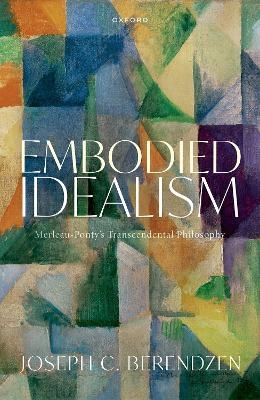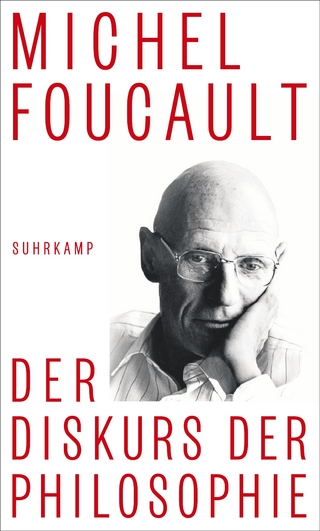
Embodied Idealism
Oxford University Press (Verlag)
978-0-19-287476-4 (ISBN)
Embodied Idealism argues that Maurice Merleau-Ponty's early thought - primarily as found in The Structure of Behavior and Phenomenology of Perception - stands as a form of transcendental idealism. This interpretation runs against the grain of much of the Merleau-Ponty scholarship, and opposing interpretations are not without support. Merleau-Ponty is at points highly critical of idealism in his early works. Also, his emphasis on embodiment would seem to run counter to the idealist view that the mental is central to reality.
Joseph Berendzen shows that these points can be accommodated within a transcendental idealist interpretation. Merleau-Ponty's overt criticisms of idealism are aimed at specific aspects of idealist theories that are not obligatory aspects of idealism in general. Rather, his critique is typically aimed at a specific version of intellectualist idealism associated with his teacher Léon Brunschvicg. In spite of his overt criticisms of idealism, Merleau-Ponty's early philosophy holds that our experience is inextricably structured by our minds. Furthermore, he holds that reality is ontologically dependent on the mind, yet in a manner that also allows for a sense in which reality is mind-independent. It is crucial to this interpretation that Merleau-Ponty's emphasis on embodiment leads to a unique view of embodied consciousness and subjectivity that supports a novel form of idealism, rather than motivating an anti-idealist position. Thus, his transcendental idealism is genuinely an embodied idealism.
Joseph C. Berendzen graduated with a BA, majors in Philosophy and History, from Saint Louis University in 1997 and received his PhD from Villanova University in 2002. He has served on the faculty of the Department of Philosophy at Loyola University New Orleans since 2004. His research focuses on 19th and 20th Century French and German philosophy, with emphases on phenomenology (especially the works of Maurice Merleau-Ponty), German idealism, and Frankfurt School critical theory.
Introduction
1: Prologue: Defining Idealism
Part One: Idealism Before Phenomenology of Perception
2: Merleau-Ponty's Early Critique of Idealism: Text and Context
3: Foundations of Transcendental Idealism in The Structure of Behavior
4: Problematizing Transcendental Idealism in The Structure of Behavior
Part Two: Idealism in Phenomenology of Perception
5: The Overt Critique of Idealism in Phenomenology of Perception
6: Transcendental Idealism in Phenomenology of Perception: The Basic Framework
7: Transcendental Subjectivity in Phenomenology of Perception
8: Transcendental Analysis in Phenomenology of Perception
9: Ontology and Intersubjectivity in Phenomenology of Perception
Conclusion
Bibliography
| Erscheinungsdatum | 11.07.2023 |
|---|---|
| Verlagsort | Oxford |
| Sprache | englisch |
| Maße | 158 x 240 mm |
| Gewicht | 562 g |
| Themenwelt | Geisteswissenschaften ► Philosophie ► Philosophie der Neuzeit |
| ISBN-10 | 0-19-287476-4 / 0192874764 |
| ISBN-13 | 978-0-19-287476-4 / 9780192874764 |
| Zustand | Neuware |
| Informationen gemäß Produktsicherheitsverordnung (GPSR) | |
| Haben Sie eine Frage zum Produkt? |
aus dem Bereich


